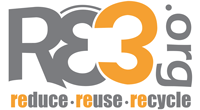 A few months ago I was asked to be an Environment Committee Consultant for the N.C. Youth Legislative Assembly. The YLA is a mock general assembly which allows high school students to develop a better understanding and knowledge of local, state and national government as well as the confidence and ability to debate current issues. I had a great discussion with the students and was pleased to read the bill that they passed regarding a refund system for recyclable containers. One common issue with deposit programs is the need to create a redemption infrastructure. Read below how the students tackled this issue. What are your thoughts?
A few months ago I was asked to be an Environment Committee Consultant for the N.C. Youth Legislative Assembly. The YLA is a mock general assembly which allows high school students to develop a better understanding and knowledge of local, state and national government as well as the confidence and ability to debate current issues. I had a great discussion with the students and was pleased to read the bill that they passed regarding a refund system for recyclable containers. One common issue with deposit programs is the need to create a redemption infrastructure. Read below how the students tackled this issue. What are your thoughts?AN ACT TO REQUIRE A MINIMUM REFUNDABLE DEPOSIT ON RECYCLABLE, INDIVIDUALLY SEALED BEVERAGE CONTAINERS
WHEREAS, reducing roadside litter is important for the promotion of tourism and to
increase the quality of life for the residents of this state; and
WHEREAS, recycling is also an important element of an integrated solid waste management system, which can protect and preserve environmental resources and reduce economic costs to residents and businesses within the state; and
WHEREAS, the general assembly finds a need to reduce both roadside litter and overall
litter, as well as a need to expand participation in recycling programs and to minimize costs to those participating in such programs and to government; and
WHEREAS, in a deposit-refund system, when a retailer buys beverages from a distributor, a deposit is paid to the distributor for each can or bottle purchased. The consumer pays the deposit to the retailer when buying the beverage. When the consumer returns the empty beverage container to the retailer or a redemption center, the deposit is refunded to the consumer. The retailer or redemption center is reimbursed the deposit from the distributor, plus an additional handling fee in most U.S. states (Container Recycling Institute); and
WHEREAS, similar beverage container redemption laws have been passed in California, Connecticut, Delaware, Hawaii, Iowa, Massachusetts, Maine, Michigan, New York, Oregon, and Vermont; and
WHEREAS, campaigns for similar beverage container redemption laws are ongoing in
Arizona, Kansas, Maryland, Minnesota, New Hampshire, New Jersey, Rhode Island, South Dakota, Tennessee, and West Virginia; and
WHEREAS, in 2007, about 40-60 percent of roadside litter in North Carolina was glass,
aluminum and plastic beverage containers (Container Recycling Institute); and
WHEREAS, North Carolina spent $16.6 million to remove 10.1 million pounds of roadside litter in 2006, according to the Raleigh News & Observer; and
WHEREAS, in 2000, unclaimed deposits amounted to $84.7 million in New York, $28.5 million in Massachusetts, and $23.5 million in Michigan (Container Recycling Institute); and
WHEREAS, according to The Container Recycling Institute, a nonprofit group that supports deposit laws, the beverage-container recycling rate in deposit states is about 70 percent, while it is about 34 percent nationwide (Wall Street Journal); and
WHEREAS, the purposes of this act are to reduce roadside litter and overall litter, and to increase participation and recycling rates for specified deposit beverage containers; Now, therefore,
Be it resolved by the 2009 Youth Legislative Assembly that North Carolina requires a refundable deposit on recyclable, individually sealed beverage containers.
Section 1: North Carolina shall adopt a deposit-refund system that shall apply to glass, aluminum, steel, bimetal, and plastic individually-sealed beverage containers up to two liters.
A. Deposit Initiation: Retailers shall be charged a deposit of five cents per container purchased from a distributor or bottler. Every consumer who purchases a beverage in a beverage container from a retailer shall pay a deposit of five cents per container to the retailer.
B. Deposit Redemption: Consumers shall be refunded the deposit of five cents per container by the redemption center upon the return of the container to a redemption center. Redemption centers shall in turn be refunded the deposit of five cents per container plus a handling fee of one cent per container, paid by the distributor.
C. Redemption centers shall be entirely voluntary. Any retailer or municipal government may apply to be a certified redemption center.
Section 2: Deposit containers that are not returned through the deposit-refund system, or containers that are recycled through existing municipal recycling programs, such as curbside programs or drop-off sites, are to be considered unclaimed or abandoned property. These unclaimed deposits shall escheat to the State of North Carolina and the Department of Environment and Natural Resources, to maintain the deposit-refund system and other environmental programs.
A. The North Carolina Department of Environment and Natural Resources will use said funds to provide grants to municipal governments to encourage the creation of redemption centers and maintain their operations for a period of time not to exceed two years following the adoption of this legislation.
Section 3: Every recyclable beverage container that contains a beverage that is sold or offered in North Carolina shall clearly indicate by embossing or imprinting on the container the initials ‘N.C.’ and the refund value of five cents.
Section 4: This bill will go into effect April 22, 2010.
This Bill Passed. For: 210. Against: 16. Abstain: 16

No comments:
Post a Comment